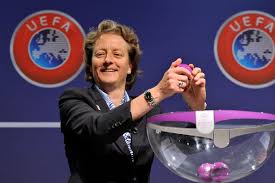By Andrew Warshaw
June 1 – European football has lost the services of arguably its most knowledgeable and dedicated voice in the women’s game after Karen Espelund decided not to put her name forward as UEFA’s representative on FIFA’s newly established ruling Council.
Last month, Espelund was controversially sacrificed when she lost out to Florence Hardouin of France to become the first elected female member of UEFA’s executive committee despite having worked tirelessly for women’s game for the best part of five years.
Instead of turning the Norwegian’s co-opted UEFA exco position into an elected post as part of the FIFA reform process promoting greater female decision making, UEFA went for the French alternative candidate, director general of her national federation but someone with little experience of administering the women’s game.
Although no-one would dare admit it, it smacked of a manoeuvre to secure a French voice on European football’s top table in the event that Michel Platini failed to clear his name over ethics breaches which is exactly what happened when the UEFA boss was banned for four years by the Court of Arbitration for sport.
Espelund has now taken the decision to stay out of the spotlight for good and not go for membership of the FIFA Council, on which six seats have to be reserved for women, one from each regional confederation.
FIFA is understood to have extended the deadline for confederations to nominate their candidates, originally set for the end of May, until late July, with a decision in September ahead of the Council’s first meeting in full session in October.
Espelund still feels that in order to have a more vocal European female presence within football’s decision making process, the role should be split, with one person on UEFA’s executive committee (ie Hardouin) and someone different on the Council.
But it won’t be her.
“I’d still like to work on development issues in some shape or form,” Espelund told Insideworldfootball. “I very much support the FIFA reform process which has a lot of good aspects but it would be a very different role working in the council where the agenda is set by FIFA.”
“FIFA should be more active in supporting the confederations. That’s where the main development work is done, that’s where the competitions are run. Of course FIFA have considerable competence but I don’t see enough signals that they will work hand in hand with the confederations.”
“Having said that, I’d still like the role to be split. Better to have two female voices from Europe than one.”
Contact the writer of this story at moc.l1745009924labto1745009924ofdlr1745009924owedi1745009924sni@w1745009924ahsra1745009924w.wer1745009924dna1745009924

